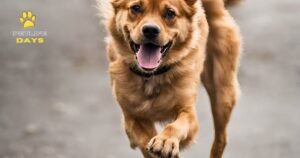love and care, the heart of pet Companionship
TOPICS
______
LATEST POST & GUIDE
_________________

How Long Does it take for a Dog to Reincarnate?|Unlocking the Mystery
Introduction The idea of reincarnation belief that a soul can be reborn into another form after death. Include dogs, they may also undergo reincarnation. In

Why are Brindle Dogs Unpopular?-Unlocking the 7 Secrets
Introduction Why are Brindle dogs Unpopular? This question arises when people reluctance to keep Brindle as a pet. There are various popular dog breeds we

10 Secrets & Sweet Momentum : Why do Dogs Eyes Roll Back When They Sleep?
Introduction Have you seen, that sometimes your dogs eyes roll back when they sleep? Why this is happening? You are not the only one who

Why Does My Dog Step On My Feet?-10 Surprising Reasons
Introduction Why does my dog step on my feet? Sometimes you notice that your furry friend’s behavior is like this or they may scratch or

5 Mysterious Behavior-Why do Dogs Stomp their Front Feet?
Introduction:- Have you ever noticed why your dogs stomp their front feet? Usually, This type of behavior of your dog can’t be accepted, it can

Best Dog Food for Schnauzer-Tips and Food Choices 2024
Introduction Learn effective strategies and find the Best dog food for Schnauzer to achieve and maintain a healthy weight. Your guide to a fit and
